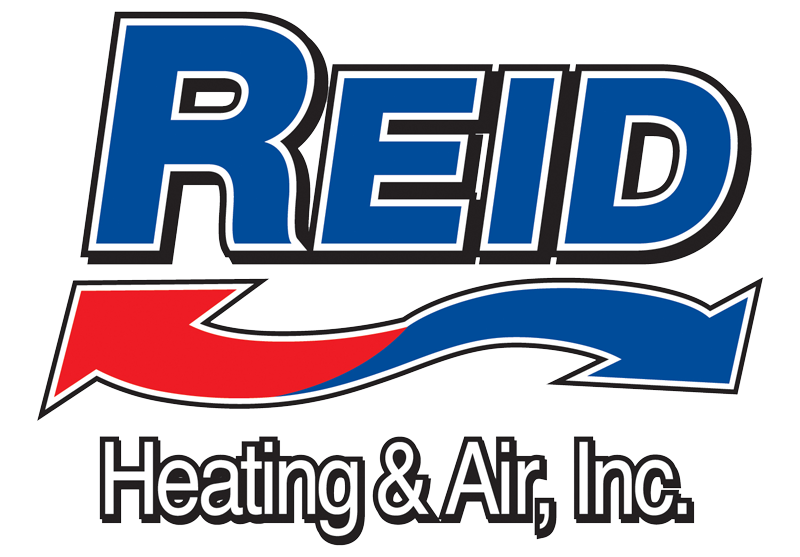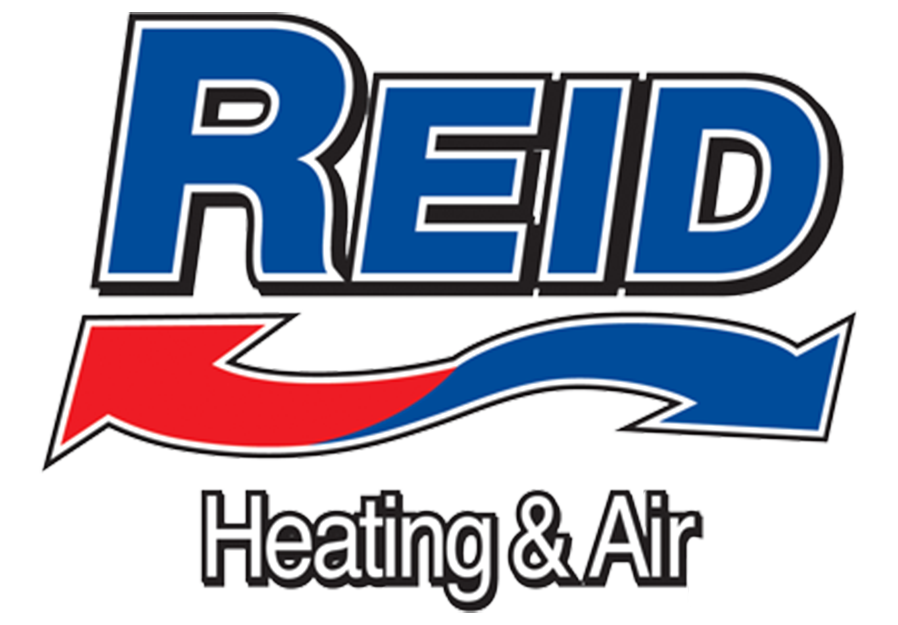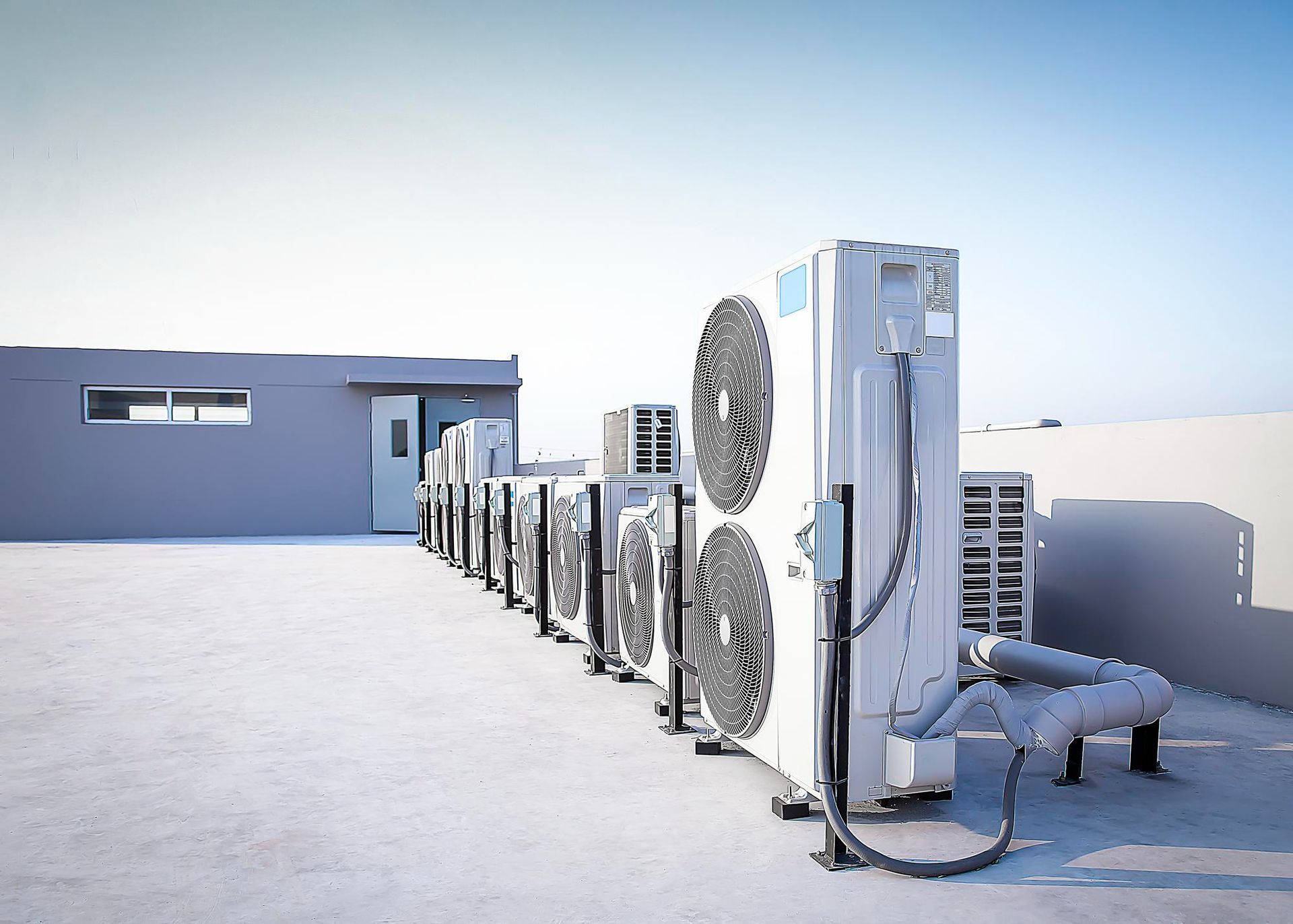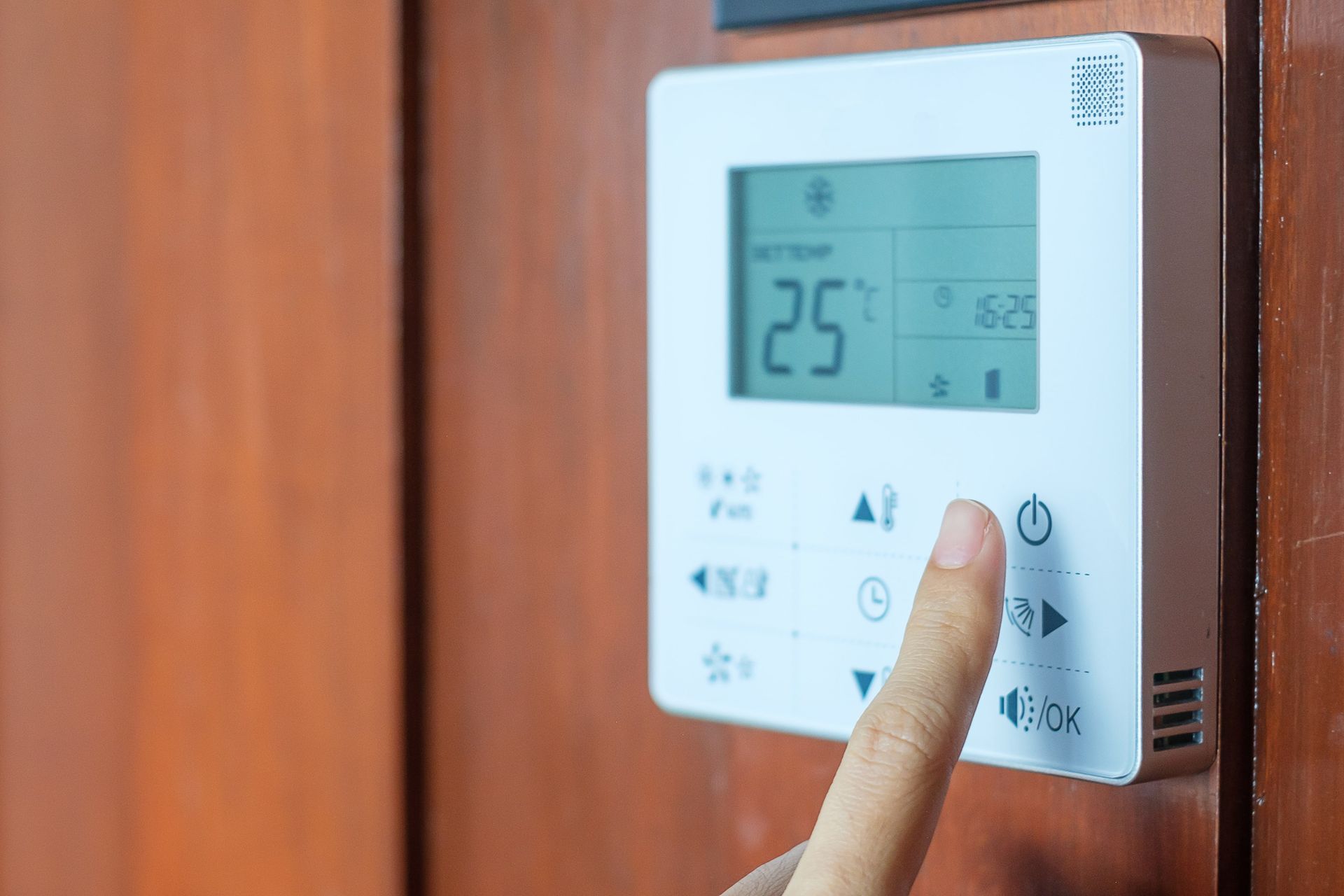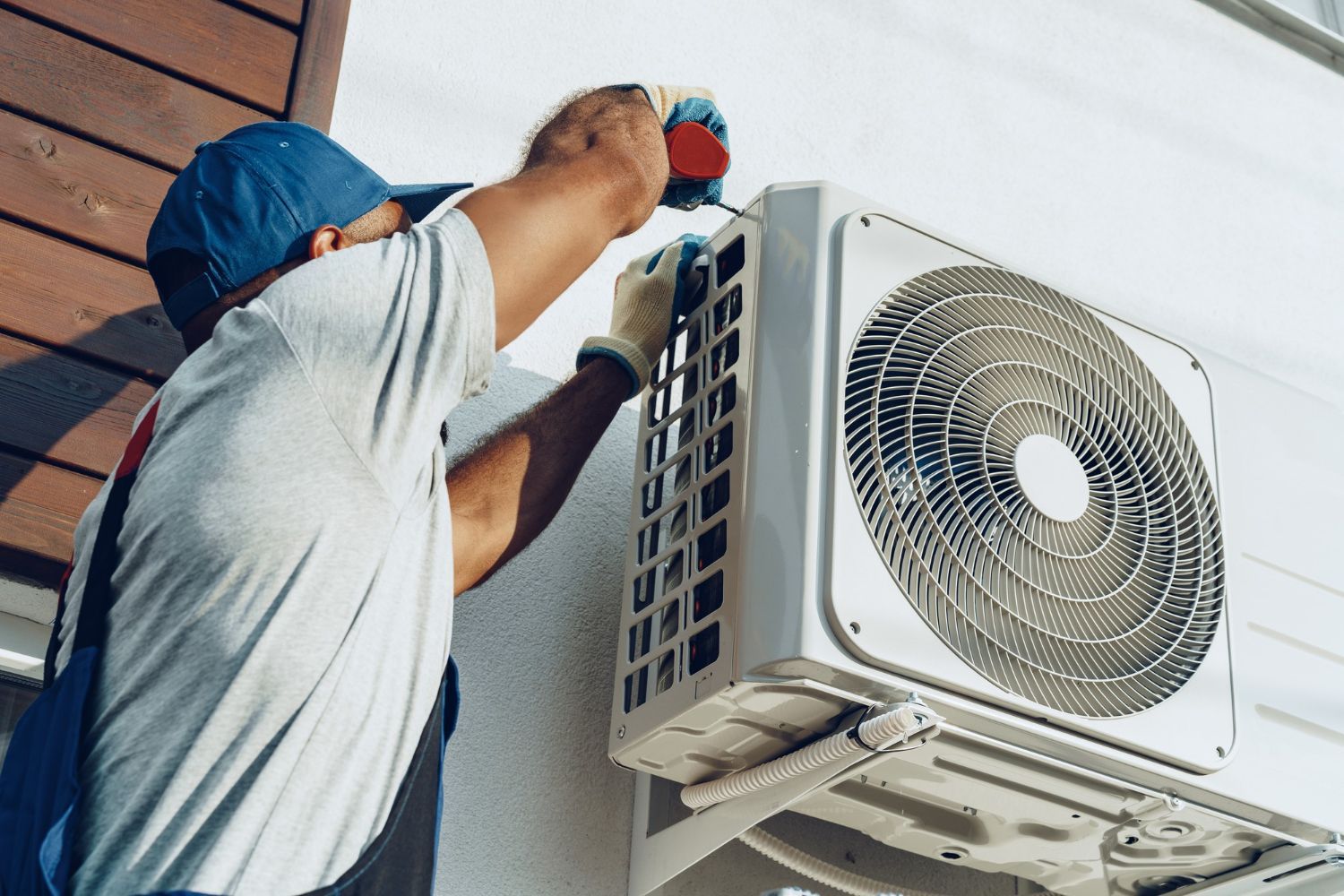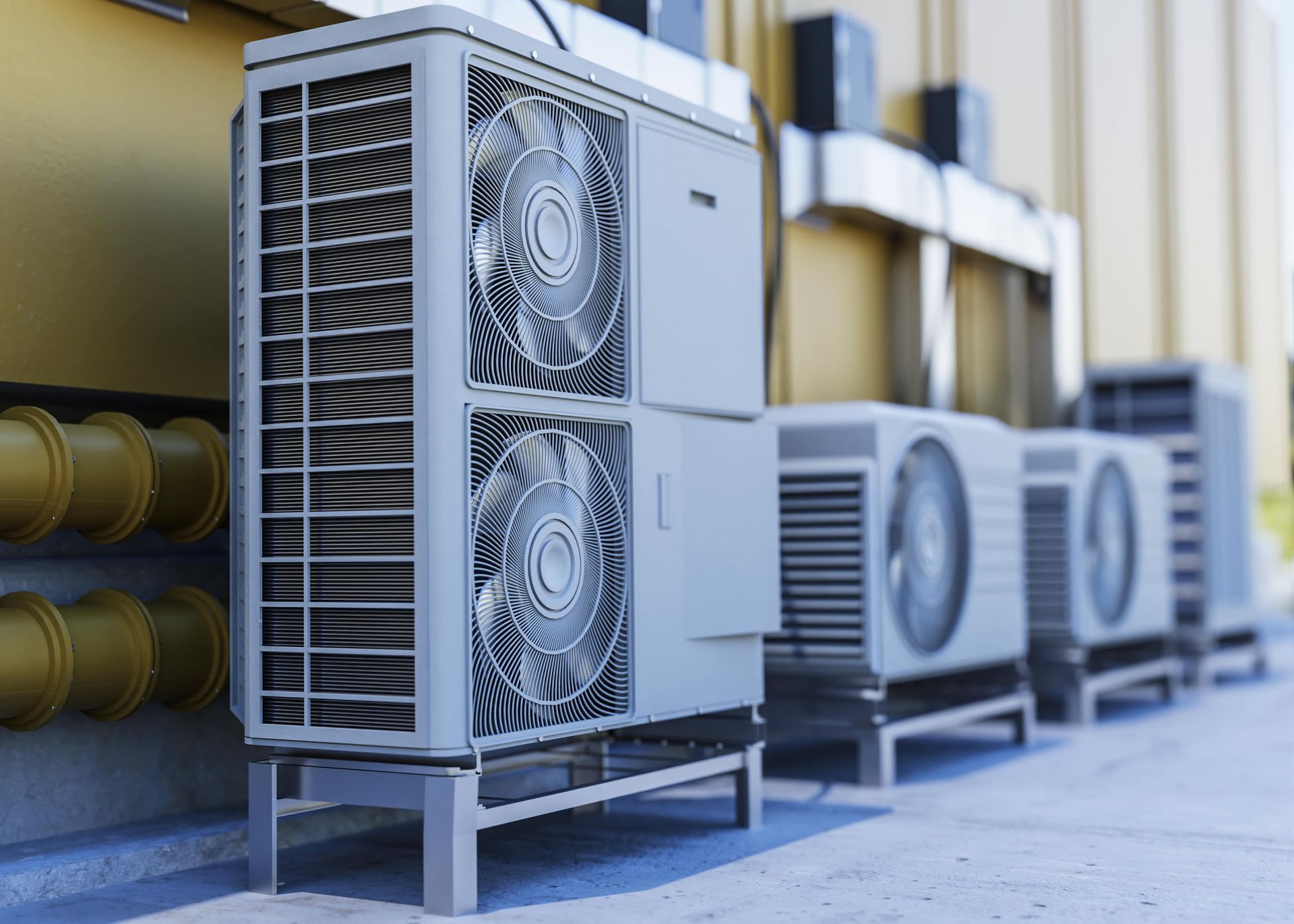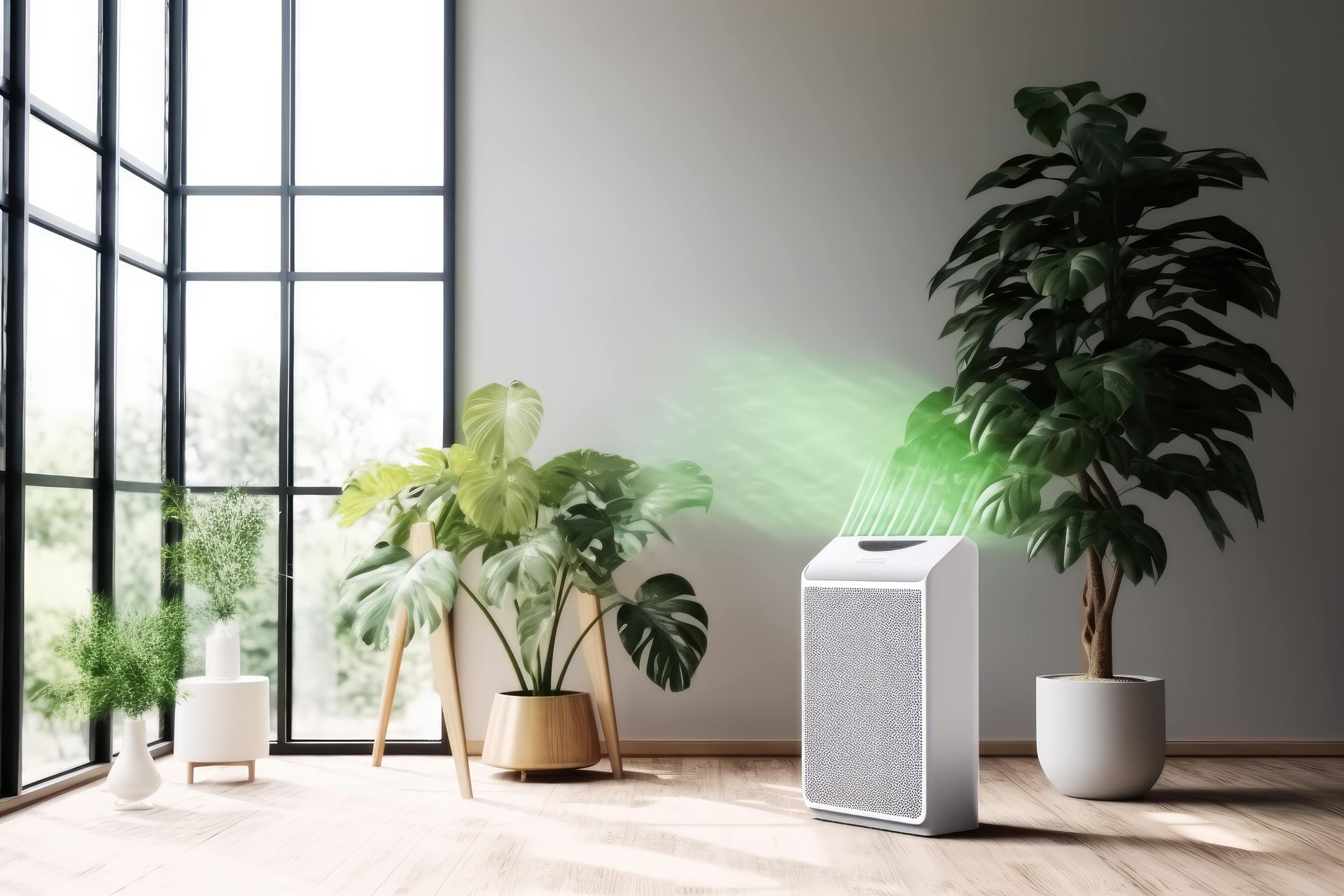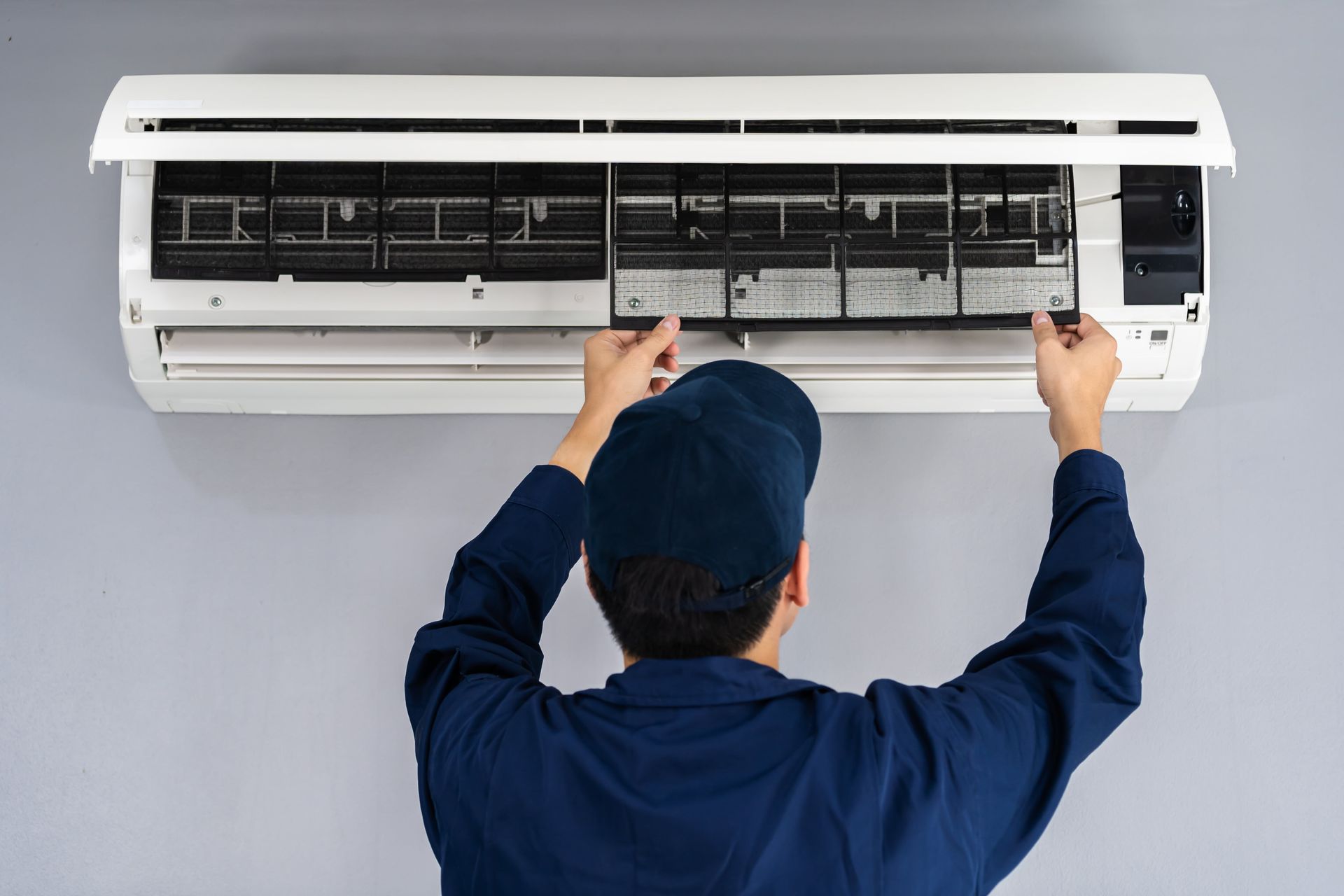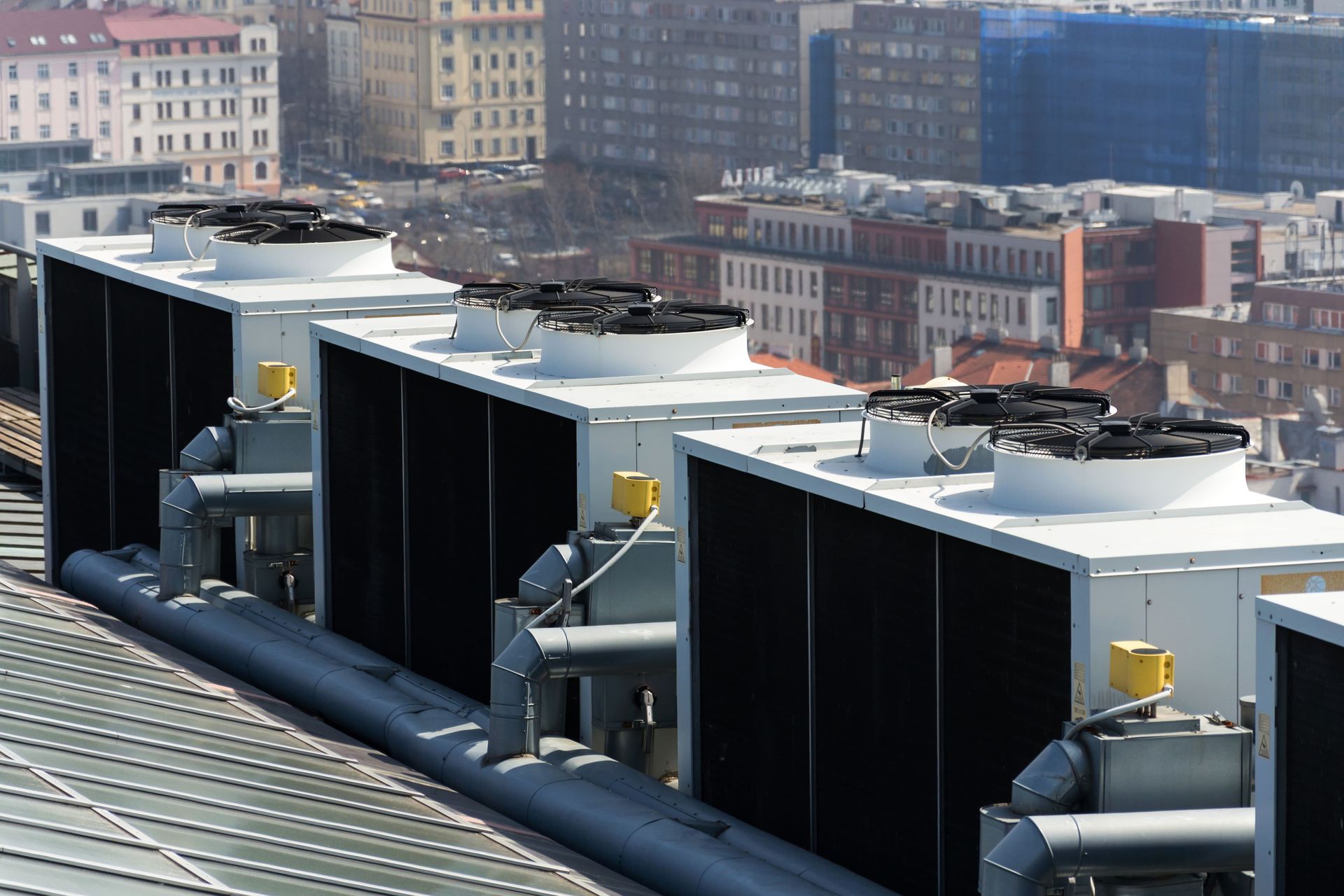Stay Cool and Comfortable: The Ultimate Guide to Air Conditioning Repair
When the summer heat becomes unbearable, we rely on our air conditioning systems to keep us cool and comfortable. But what happens when our trusty AC unit starts acting up? That's where air conditioning repair comes in. In this ultimate guide, we will explore everything you need to know about air conditioning repair, from understanding the components of an AC system to common problems and their solutions, as well as DIY repair tips and safety guidelines. We will also discuss when it's time to call in the professionals and how to choose a reputable air conditioning repair service. So, let's dive in and ensure you stay cool and comfortable all summer long.
Introduction to Air Conditioning Repair
When the scorching heat of summer arrives, we rely on our air conditioning systems to provide us with a cool and comfortable indoor environment. However, just like any other mechanical system, air conditioners can encounter problems and require repairs. In this comprehensive guide, we will delve into the world of air conditioning repair, exploring the various aspects that homeowners need to be aware of to ensure optimal performance and longevity of their AC units.
Air conditioning repair is a crucial service that addresses issues and malfunctions within the cooling system. By addressing these problems promptly, homeowners can not only restore their comfort but also prevent further damage that may lead to more expensive repairs or even a complete system replacement. Understanding the importance of air conditioning repair and recognizing the signs of trouble can help homeowners take proactive measures to keep their AC units running smoothly.
Common Signs and Symptoms of Air Conditioning Problems
Before diving into the nitty-gritty of air conditioning repair, it's essential to familiarize ourselves with the common signs and symptoms that indicate a malfunctioning AC system. By being aware of these indicators, homeowners can identify potential issues early on and seek timely repairs. Some of the most common signs of air conditioning problems include:
- Insufficient cooling or airflow: If your AC is blowing warm air or the airflow is weak, it may indicate issues such as dirty air filters, blocked or leaking ducts, or malfunctioning fan motors.
- Strange noises or odors: Unusual sounds like banging, grinding, or squealing, as well as unpleasant odors, can be indicative of loose or damaged belts, refrigerant leaks, or mold and mildew growth within the system.
- System cycling on and off frequently: If your AC unit frequently turns on and off, it could be due to thermostat issues, overheating condenser coils, or low refrigerant levels.
- Water leaks or moisture buildup: Water leaks or excessive moisture around the AC unit can result from a clogged condensate drain line, frozen evaporator coils, or improper installation or insulation.
- Electrical problems and failures: Issues such as faulty capacitors, tripped circuit breakers, or malfunctioning compressors can lead to electrical problems or complete system failures.
By paying attention to these signs, homeowners can take the necessary steps to diagnose the problem or seek professional assistance for air conditioning repair. Identifying the root cause of the issue is crucial in ensuring a proper and effective repair process.
Benefits of Timely Air Conditioning Repair
Timely air conditioning repair offers numerous benefits for homeowners, both in terms of comfort and financial savings. Let's take a closer look at some of the advantages of addressing air conditioning problems promptly:
- Improved Energy Efficiency: A malfunctioning AC system often consumes more energy to deliver the desired cooling. By repairing and maintaining the system, homeowners can enjoy improved energy efficiency, leading to lower utility bills and reduced environmental impact.
- Enhanced Indoor Comfort: A properly functioning AC system ensures a consistent and comfortable indoor temperature, optimizing your home's comfort levels. Repairing any issues promptly can prevent discomfort due to inadequate cooling or inconsistent airflow.
- Extended Lifespan of the System: Regular maintenance and timely repairs can significantly extend the lifespan of your air conditioning system. By addressing problems early on, you can prevent further damage and avoid the need for premature replacement.
- Cost Savings: Ignoring air conditioning problems can lead to more significant issues that require expensive repairs or even a complete system replacement. Timely repairs help prevent escalating problems and the associated costs, saving homeowners money in the long run.
- Health and Safety: A malfunctioning AC system can negatively impact indoor air quality, leading to respiratory issues or allergies. By promptly repairing the system, homeowners can ensure a healthy and safe indoor environment for themselves and their families.
By understanding the importance of air conditioning repair and recognizing the signs of trouble, homeowners can take proactive steps to address any issues promptly. In the following sections, we will explore the components of an air conditioning system, common problems and their solutions, as well as provide helpful tips for DIY repairs and guidance on when to call in professional assistance.
Understanding Air Conditioning Systems
o effectively address air conditioning repair, it's essential to have a basic understanding of the components that make up an air conditioning system. By familiarizing ourselves with these components, we can better grasp how the system functions and identify potential areas of concern. Let's explore the key components of an air conditioning system:
Components of an Air Conditioning System
- Compressor: The compressor is the heart of the air conditioning system. It circulates the refrigerant, a chemical compound responsible for absorbing and releasing heat, between the indoor and outdoor units. The compressor pressurizes the refrigerant, raising its temperature and converting it from a low-pressure gas to a high-pressure gas.
- Condenser: The condenser is located in the outdoor unit and works in conjunction with the compressor. It is responsible for releasing heat from the refrigerant to the outside air. As the high-pressure gas refrigerant flows through the condenser coils, it loses heat and condenses into a high-pressure liquid.
- Evaporator Coil: The evaporator coil is located in the indoor unit, often within the furnace or air handler. It plays a crucial role in cooling the indoor air. As the high-pressure liquid refrigerant enters the evaporator coil, it expands and evaporates, absorbing heat from the surrounding air and converting back into a low-pressure gas.
- Refrigerant: Refrigerant is a chemical compound that circulates within the air conditioning system, absorbing and releasing heat to cool the indoor air. It undergoes a continuous cycle of phase changes, transitioning between a gas and liquid state as it absorbs and releases heat.
- Thermostat: The thermostat serves as the control center of the air conditioning system. It allows homeowners to set and maintain their desired indoor temperature. The thermostat monitors the temperature and signals the system to turn on or off based on the set temperature and the current indoor conditions.
Types of Air Conditioning Systems
Air conditioning systems come in various types, each with its own advantages and considerations. Understanding the different types can help homeowners choose the most suitable system for their needs. Here are the main types of air conditioning systems:
- Central Air Conditioning: Central air conditioning systems are the most common type found in residential properties. They consist of a central unit that cools and dehumidifies the air, which is then distributed through ductwork to various rooms in the house. Central AC systems provide efficient cooling for larger homes and offer consistent temperature control throughout the entire living space.
- Window Air Conditioning Units: Window AC units are self-contained systems that are installed directly into a window or a specially designed opening in the wall. These units are ideal for smaller spaces or individual rooms. They are relatively affordable and easy to install, making them a popular choice for apartments, small homes, or single-room cooling needs.
- Split Air Conditioning Systems: Split systems consist of two main components: an outdoor unit containing the compressor and condenser, and an indoor unit containing the evaporator coil and blower. These systems are connected by refrigerant lines and require professional installation. Split systems offer flexibility in cooling individual zones or rooms, allowing for personalized temperature control and energy efficiency.
- Ductless Mini-Split Systems: Ductless mini-split systems are similar to split systems but do not require ductwork for air distribution. They consist of an outdoor unit and one or more indoor units, which are mounted on the wall or ceiling. Ductless mini-splits are ideal for homes without existing ductwork or for room additions. They offer zoned cooling capabilities, allowing homeowners to control the temperature in specific areas independently.
Understanding the components and types of air conditioning systems provides a foundation for troubleshooting and repair. In the next section, we will explore common air conditioning problems and their solutions, helping homeowners diagnose and address issues with their AC units.
Common Air Conditioning Problems and Solutions
Air conditioning systems can experience a range of problems that can impact their performance and efficiency. Understanding these common issues and their potential solutions can help homeowners troubleshoot and address problems before they escalate. Let's explore some of the most frequent air conditioning problems and their solutions:
Insufficient Cooling or Airflow
One of the most common issues homeowners face with their air conditioning systems is insufficient cooling or airflow. If you notice that your AC is not providing enough cool air or the airflow seems weak, several potential culprits may be causing the problem:
- Dirty Air Filters: Over time, air filters can become clogged with dust, dirt, and debris, restricting the airflow and reducing cooling efficiency. Regularly cleaning or replacing the air filters can help maintain proper airflow and improve cooling performance.
- Blocked or Leaking Ducts: Blocked or leaking ducts can hinder the distribution of cool air throughout the home. Inspecting and addressing any obstructions or leaks in the ductwork can help restore proper airflow and cooling efficiency.
- Malfunctioning Fan Motors: The fan motors in the indoor and outdoor units play a crucial role in moving the air. If the fan motors are not functioning correctly, it can result in inadequate airflow. Repairing or replacing faulty fan motors can help restore proper airflow and cooling performance.
Strange Noises or Odors
Unusual sounds or unpleasant odors coming from your air conditioning system can be alarming. These issues can indicate underlying problems that require attention. Here are some common causes of strange noises or odors and their solutions:
- Loose or Damaged Belts: A loose or damaged belt can cause a variety of noises, such as squealing or screeching sounds. Inspecting and replacing worn-out or damaged belts can eliminate these noises and ensure proper operation.
- Refrigerant Leaks: Refrigerant leaks can emit hissing or bubbling sounds and may result in reduced cooling performance. It's crucial to address refrigerant leaks promptly by repairing the damaged components and recharging the system with the appropriate amount of refrigerant.
- Mold or Mildew Growth: A musty odor coming from the air conditioning system can indicate mold or mildew growth. This can occur in areas such as the evaporator coil or condensate drain pan. Cleaning and disinfecting these areas can eliminate the odor and prevent further mold growth.
System Cycling On and Off Frequently
If your air conditioning system frequently cycles on and off, it can be a sign of an underlying issue that needs attention. Some common causes of this problem include:
- Thermostat Issues: A malfunctioning thermostat can result in improper temperature readings, causing the system to cycle on and off unnecessarily. Calibrating or replacing the thermostat can help resolve this issue.
- Overheating Condenser Coils: Overheating condenser coils can cause the system to shut down to prevent damage. Cleaning the coils and ensuring proper airflow around the outdoor unit can prevent overheating and frequent cycling.
- Low Refrigerant Levels: Low refrigerant levels can cause the system to work harder, leading to frequent cycling. Identifying and repairing refrigerant leaks, followed by recharging the system to the appropriate level, can resolve this issue.
Water Leaks or Moisture Buildup
Water leaks or excessive moisture around the air conditioning system can be signs of potential problems that require attention. Here are some common causes and solutions for water leaks or moisture buildup:
- Clogged Condensate Drain Line: Over time, the condensate drain line can become clogged with dirt, debris, or algae, leading to water backup and leaks. Clearing the clog and ensuring proper drainage can prevent water leaks and potential water damage.
- Frozen Evaporator Coils: If the evaporator coils freeze, it can lead to water leaks once they start to thaw. This can be caused by issues such as restricted airflow or low refrigerant levels. Addressing the underlying cause and allowing the coils to thaw can resolve the issue.
- Improper Installation or Insulation: Poor installation or insufficient insulation can result in condensation and moisture buildup. Ensuring proper installation practices and adequate insulation can prevent moisture-related issues.
Electrical Problems and Failures
Electrical problems can cause disruptions in the functioning of an air conditioning system. Here are some common electrical issues and their solutions:
- Faulty Capacitors: Capacitors are responsible for starting the motors in the air conditioning system. A faulty capacitor can result in motor failure or erratic operation. Identifying and replacing faulty capacitors can resolve this issue.
- Tripped Circuit Breakers: Tripped circuit breakers can interrupt the power supply to the air conditioning system. Resetting the circuit breakers and ensuring proper electrical connections can prevent this issue.
- Malfunctioning Compressors: Compressors are susceptible to electrical failures, which can result in the system not cooling properly or not turning on at all. Proper diagnosis and repair of the compressor or its associated electrical components can resolve this issue.
By understanding these common air conditioning problems and their solutions, homeowners can take appropriate action to address the issues themselves or seek professional assistance. In the next section, we will provide valuable tips and safety guidelines for DIY air conditioning repairs, empowering homeowners to tackle minor issues on their own.
DIY Air Conditioning Repair Tips and Safety Guidelines
While some air conditioning problems may require professional assistance, there are certain repairs that homeowners can tackle on their own. DIY air conditioning repair can help save money and provide a sense of accomplishment. However, it's important to approach these tasks with caution and follow safety guidelines to avoid accidents or further damage to the system. Here are some valuable tips and safety guidelines for DIY air conditioning repairs:
Basic Tools and Equipment Required for Air Conditioning Repair
Before attempting any DIY air conditioning repairs, it's essential to have the necessary tools and equipment on hand. Here are some basic tools commonly used for air conditioning repairs:
- Screwdrivers: A set of screwdrivers, including both flathead and Phillips head, is essential for removing screws and accessing various components of the air conditioning system.
- Adjustable Wrench: An adjustable wrench is useful for tightening or loosening nuts and bolts, which may be encountered during repairs or maintenance tasks.
- Pliers: Pliers, such as needle-nose pliers and slip-joint pliers, can be helpful for gripping and manipulating small components or wires.
- Multimeter: A multimeter is used to measure electrical current, voltage, and resistance. It is essential for diagnosing electrical issues and ensuring the proper functioning of components.
- Fin Comb: A fin comb is a specialized tool used to straighten bent fins on the condenser or evaporator coils. This helps maintain proper airflow and cooling efficiency.
- Vacuum Pump: A vacuum pump is required to evacuate the refrigerant from the system during certain repairs or maintenance tasks.
- Refrigerant Gauges: Refrigerant gauges are used to measure the pressure levels of the refrigerant within the system. They are helpful for diagnosing refrigerant-related issues.
Step-by-Step Guide for Simple Repairs
While complex repairs are best left to professionals, homeowners can effectively handle some simple air conditioning repairs on their own. Here is a step-by-step guide for a few common DIY repairs:
- Cleaning or Replacing Air Filters: Dirty air filters can restrict airflow and reduce cooling efficiency. To clean the filters, remove them from the unit and rinse them with water. Allow them to dry thoroughly before reinserting them. If the filters are damaged or worn out, it's best to replace them with new ones.
- Clearing Blocked Condensate Drain Line: A clogged condensate drain line can lead to water leaks. To clear the blockage, locate the drain line and use a wet/dry vacuum or a long, flexible brush to remove the debris. Alternatively, a mixture of vinegar and water can be poured into the drain line to break up any buildup.
- Resetting Tripped Circuit Breakers: If the air conditioning system is not turning on, check the circuit breakers. Locate the breaker panel and identify the breaker that controls the AC unit. If the breaker has tripped, switch it off and then back on to reset it. If the breaker continues to trip, it may indicate a more significant electrical issue and professional assistance should be sought.
Safety Precautions and Warnings for DIY Repairs
While DIY air conditioning repairs can be rewarding, it's crucial to prioritize safety to avoid accidents or further damage to the system. Here are some safety precautions and warnings to keep in mind:
- Electrical Safety: Before starting any repairs, ensure that the power to the air conditioning system is turned off. This can be done by switching off the corresponding circuit breaker. Additionally, avoid working on the system in wet conditions, and always use insulated tools to minimize the risk of electrical shock.
- Handling Refrigerant: Refrigerant is a chemical compound that can be harmful if not handled properly. When working with refrigerant, wear gloves and safety goggles to protect your skin and eyes. Follow the manufacturer's instructions for proper handling, storage, and disposal of refrigerant.
- Working at Heights: Some air conditioning repairs may require working at heights, such as on a ladder or rooftop. Ensure that the ladder is stable and secure before climbing. If working on a rooftop, take precautions to avoid slips or falls, such as wearing appropriate footwear and using safety harnesses if necessary.
It's important to note that while DIY repairs can be effective for minor issues, certain repairs and maintenance tasks should be left to qualified professionals. Complex electrical work, refrigerant handling, or major component replacements should be performed by licensed HVAC technicians to ensure safety and prevent further damage to the system.
By following these DIY air conditioning repair tips and safety guidelines, homeowners can tackle minor issues and perform routine maintenance to keep their systems running smoothly. However, if the repairs seem too complex or if safety is a concern, it's always best to seek professional assistance. In the next section, we will discuss when it's time to call a professional air conditioning repair service and provide guidance on choosing the right service provider.
When to Call a Professional Air Conditioning Repair Service
While DIY repairs can be effective for minor issues, there are times when it's best to call a professional air conditioning repair service. Professional technicians have the expertise, experience, and specialized tools to diagnose and address complex problems safely and efficiently. Here are some situations in which it's advisable to seek professional assistance:
Benefits of Hiring a Professional Technician
- Expertise and Experience: Professional technicians undergo extensive training and have a deep understanding of air conditioning systems. They are well-versed in diagnosing complex issues, ensuring accurate repairs, and optimizing system performance.
- Time and Cost Efficiency: Professional technicians can quickly identify and resolve problems, saving homeowners time and effort. They also have access to the necessary tools, equipment, and replacement parts, ensuring efficient repairs. Additionally, their expertise helps prevent further damage or costly mistakes that may occur during DIY repairs.
- Warranty and Guarantees: Many professional air conditioning repair services offer warranties or guarantees on their work. This provides homeowners with peace of mind, knowing that if any issues arise after the repair, they can rely on the service provider to rectify the problem.
How to Choose a Reputable Air Conditioning Repair Service
When selecting a professional air conditioning repair service, it's important to choose a reputable and reliable provider. Here are some factors to consider during the selection process:
- Checking Licenses and Certifications: Ensure that the service provider holds the necessary licenses and certifications required by local authorities. This ensures that they meet the industry standards and regulations.
- Reading Customer Reviews and Testimonials: Take the time to read customer reviews and testimonials online. This provides insights into the experiences of previous customers and helps gauge the service provider's reputation and customer satisfaction.
- Obtaining Multiple Quotes and Comparing Services: It's advisable to obtain quotes from multiple air conditioning repair services. Comparing the services offered, pricing, and warranties can help homeowners make an informed decision based on their specific needs and budget.
Questions to Ask a Potential Air Conditioning Repair Company
When considering hiring a professional air conditioning repair service, it's essential to ask relevant questions to ensure they are the right fit for the job. Here are some questions to ask a potential service provider:
- Years of Experience: Inquire about the company's experience in the industry. An established service provider with years of experience is likely to have encountered a wide range of air conditioning issues and can offer reliable solutions.
- Warranty and Guarantees: Ask about any warranties or guarantees provided by the company. This ensures that if any issues arise after the repair, the service provider will rectify them at no additional cost.
- Emergency Services and Response Time: It's crucial to inquire about the company's availability for emergency repairs and their response time. Air conditioning problems can occur at any time, and having a service provider that offers prompt emergency services can be invaluable.
By choosing a reputable and professional air conditioning repair service, homeowners can have confidence in the quality of the repairs and the long-term performance of their AC systems. Whether it's for complex repairs, system maintenance, or professional advice, a trusted service provider can ensure optimal cooling performance and comfort.
Conclusion
In this comprehensive guide, we have explored the world of air conditioning repair. We started by understanding the importance of air conditioning repair and recognizing common signs of problems. We then delved into the components and types of air conditioning systems, providing insights into their functionalities and benefits. We discussed common air conditioning problems and their solutions, empowering homeowners to troubleshoot and address minor issues themselves. Furthermore, we provided valuable tips and safety guidelines for DIY air conditioning repairs, highlighting the importance of caution and following proper procedures. Lastly, we discussed the significance of professional air conditioning repair services, offering guidance on selecting reputable providers and when to seek professional assistance.
By being proactive in addressing air conditioning problems and seeking timely repairs, homeowners can enjoy the benefits of a well-functioning AC system, including improved energy efficiency, enhanced indoor comfort, and extended system lifespan. Regular maintenance and prompt repairs can help avoid costly breakdowns and ensure consistent cooling performance, allowing homeowners to stay cool and comfortable even during the hottest summer days.
For those residing in Rock Hill, SC, Reid Heating & Air, Inc stands out as the best air conditioning repair provider. With their renowned reputation and dedication to quality service, you can reach out to them at (803) 366-1855 for all your air conditioning needs.
Remember, when in doubt or facing complex issues, it's always best to consult with a professional air conditioning repair service. Their expertise and experience will ensure the proper diagnosis, repairs, and maintenance of your air conditioning system.
Now that we have covered all aspects of air conditioning repair, you are equipped with the knowledge to tackle minor issues or make an informed decision when seeking professional assistance. Stay cool and enjoy the comfort of your well-functioning air conditioning system!
